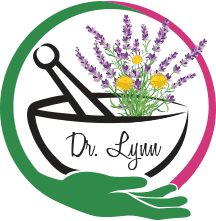Nutrition Guide Idea
- 2 Folic Acid-B12 (Take 2 per day for entire pregnancy)
- 4 Calcium Lactate Tablets (a source of easily assimilated calcium)
- 2 Bio-Dent (gives calcium, phosphorus, manganese, and minerals to build strong bones and teeth)
- 4 Cyrofood Tablets (a multivitamin concentrated from whole food, provides
calcium and beneficial natural fats) - 1 Ferrofood (supplies iron and blood building factors)
- 1 Immuplex (supports immune function, and provides beneficial fats, vitamin A, vitamin C, vitamin E, vitamin B6, folic acid, vitamin B12, iron, zinc, selenium, copper, and chromium)
- 1 Protefood (provides essential amino acids, vitamin C, choline, calcium)
- 1 Nutrimere (from a whole protein complex, great source of fiber, vitamins, and minerals)
- 2 Cataplex GTF (promotes proper sugar handling by the mother during fetal development, provides vitamin A, vitamin C, niacin)
- 2 Trace Minerals B12 (provides essential trace minerals, manganese, iodine, copper, zinc, and iron)
*This program is for the 1st trimester. Increase amounts for the 2nd trimester, and again for the 3rd trimester until the infant is weaned.
Supplement Components Explained:
Vitamins
A wholesome nutrition guide for pregnant women and for the development of a healthy baby includes folic acid and vitamin B12. Folic acid supplementation prevents neural tube defects. Clinical trials have also suggested that children of mothers who received folic acid supplementation during the second and third trimester demonstrated increased cognitive performance (Effect of continued folic acid supplementation beyond the first trimester of pregnancy on cognitive performance in the child: a follow-up study from a randomized controlled trial (FASSTT Offspring Trial).) This highlights how continuous folic acid supplementation during pregnancy may enhance children’s cognitive development along with promoting healthy neural development.
Trials have also shown that vitamin B12, folic acid, and iron supplementation improves bloodwork and biochemical parameters during pregnancy (Vitamin B12 supplementation in addition to folic acid and iron improves hematological and biochemical markers in pregnancy: a randomized controlled trial). Vitamin B12 is essential in cell division and for a healthy birth. It also decreases the mother’s chances of developing anemia.
Vitamin C is another player who is famous for its roles in boosting the immune system. Vitamin C also plays roles in infant brain development (The epigenetic role of vitamin c in neurodevelopment). Studies indicate that vitamin C in the maternal diet serves as a cofactor for epigenetic enzymes in fetal development. This supports how vitamin C supplementation during pregnancy is essential to epigenetic regulation, cellular differentiation, and neurodevelopment. High concentrations in the brain emphasize this vitamin’s importance.
Vitamin A has known functions in gene transcription regulation and healthy vision. Studies have also underlined its importance in mammary gland development and lactation. Pregnant mothers can obtain vitamin A through their diet as retinol and carotenoids. These affect vitamin A concentration in breast milk which is key to healthy infant development. Studies also identified that vitamin A is involved in mammary gland metabolism and development, healthy milk production, and in weaning processes (Role of vitamin a in mammary gland development and lactation).
Vitamin E is also needed for neural development and cognitive function. It is central in preventing lipid peroxidation, forming the omega-3 fatty acid DHA, and in proper nervous system development (Vitamin e: necessary nutrient for neural development and cognitive function). Vitamin E supports embryonic development in animal models and is believed to achieve the same in humans. Its important roles in metabolic pathway regulation and neurogenesis support its supplementation during pregnancy.
Choline is another essential nutrient whose supplementation during pregnancy enhances infant cognitive function. Trials identified that choline supplementation during the third trimester of pregnancy boosts infant information processing speed and visuospatial memory. This underlines that maternal choline supplementation during pregnancy is associated with infant cognitive benefits (Maternal choline supplementation during the third trimester of pregnancy improves infant information processing speed: a randomized, double-blind, controlled feeding study).
Studies also revealed that niacin fulfills important duties in normal embryonic development and in reducing risk for congenital anomalies (Effect of maternal dietary niacin intake on congenital anomalies: a systematic review and meta-analysis). Multi-country assessments highlighted that pregnant mothers with niacin-deficient diets were more likely to have babies with congenital abnormalities compared to those with adequate niacin intake.
Minerals
Calcium is a key mineral during pregnancy. In addition to building healthy bones and teeth, studies have shown that calcium supplementation during pregnancy reduces risk of high blood pressure, eclampsia, and preterm births (Calcium supplementation during pregnancy for preventing hypertensive disorders and related problems). Calcium supplementation also reduced risk of pre-eclampsia in mothers with calcium-deficient diets and reduced the possibility of low birthweight among newborns.
Phosphorus works alongside calcium to maintain healthy bone formation and homeostasis. They also work together to promote neuromuscular functions and overall wellbeing. Manganese is another essential mineral that is important in immune functions. Studies suggest that manganese deficiency may be associated with preeclampsia. Similarly, women with manganese supplementation in early pregnancy were observed to have reduced risks of preeclampsia (Prospective association between manganese in early pregnancy and the risk of preeclampsia).
Iron, zinc, and copper are prime elements in cellular processes, antioxidant activities, anti-inflammatory pathways, and protein synthesis. Mothers’ levels of these elements are reduced as the developing baby absorbs much of the mother’s diet. Replenishing these elements through supplementation promotes healthy fetal development. Studies propose that iron, zinc, and copper supplementation during pregnancy reduces the risk of anemia, hypertension, low birth weight, preeclampsia, and postnatal complications (The role of Fe, Zn, and Cu in pregnancy).
Iodine also has well-documented roles in maintaining thyroid health. Physiological changes during pregnancy increase demands for iodine, further supporting the need for iodine supplementation. Iodine deficiency during pregnancy can lead to hypothyroidism, goiter, stillbirth, miscarriage, and infant neurological damage (Iodine nutrition during pregnancy: past, present, and future). The risk of these conditions is reduced by appropriate iodine intake.
Selenium is another trace element with important functions in glutathione peroxidase activity, cellular membrane protection, and immune system maintenance. These processes aid in detoxification of the body as well. Studies show that selenium deficiency is associated with gestational complications, miscarriages, and fetal nervous and immune system damage (The role of selenium in human conception and pregnancy). Low maternal blood selenium concentrations are also associated with low birth weight.
Natural Fats and Fatty Acids
Fat is vital in our wellbeing. It is a hormone precursor, component of cellular membranes, and is involved in cellular processes that keep us healthy (Cholesterol review: a metabolically important molecule). It is essential during pregnancy to maintain the mother’s health, who is supplying energy and building blocks to her growing baby. Fat is equally important in a healthy baby’s cellular development.
Concluding Remarks
Every expectant mother wants the best for her little bundle of joy. The foods we eat make a striking difference in our overall wellbeing, energy levels, and ability to ward off diseases. With a developing baby, these needs become more taxing on the mother. As such, incorporating essential vitamins and minerals through vitamin-rich food consumption or supplementation is key to the mother’s and baby’s health. Our babies need all the nurturing and care possible, let’s start doing this before welcoming them to the world!


Recent Comments